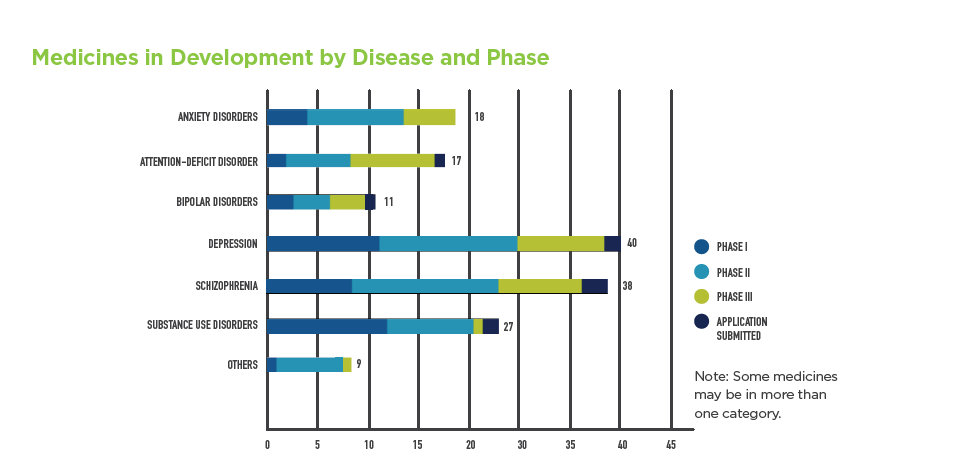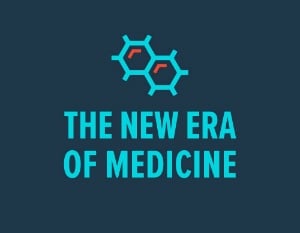Today is World Mental Health Day, a moment where we reflect about the challenges we still face towards better treatment of mental illness and its impact on patients.
Mental illness takes a heavy personal toll on the patients, caregivers and loved ones who are impacted. According to the National Institute of Mental Health, one in five people or 46.6 million Americans have a mental illness. The economic impact is also significant with resulting lost wages, health care expenditures and disability benefits costing the U.S. more than $317 billion annually.
The development of new and effective treatments for mental illness is very difficult, given the scientific complexities underlying the cause of many of these diseases. Despite these challenges, today biopharmaceutical research companies have 138 medicines in development which offer a promise to help the millions of Americans living with mental illness.
The medicines in development include:
- 40 for depression, including major depressive disorder which affects 7.1% of adults and 13.3% of adolescents aged 12 to 17 in the U.S. More than 70% of people suffering from depression have not received any kind of treatment. Approximately one-third of adults with major depression have treatment resistant depression where currently available treatments provide little to no relief, representing a significant unmet need.
- 38 for schizophrenia, which affects less than 1% of U.S. adults. Schizophrenia is a chronic and severe mental disorder that affects how a person thinks, feels and behaves. This disease in particular is especially debilitating as it can result in psychotic behaviors like hallucinations and other disruptions to normal emotions and behaviors.
- 27 for substance use disorders. Nearly 29 million Americans aged 12 and older (10.6% of the U.S. population) have reported using an illicit drug in the past month and 8.5 million adults in the U.S. have both a substance use disorder and a mental illness. The presence of co-occurring mental illness and substance use disorders can increase symptom severity, complicate treatment and create medication adherence challenges.
- 18 for anxiety disorders, which impacts more than a third of adults and adolescents in the U.S. during their lifetime. There are several types of anxiety disorders, including, generalized anxiety disorder, panic disorder, phobia-related disorders (e.g., the fear of flying, heights or needles), social anxiety disorder and separation anxiety disorder.
- 17 for attention-deficit/hyperactivity disorder (ADHD), which affects 4.4% of U.S. adults and 8.7% of adolescents aged 13 to 18. ADHD is a brain disorder marked by an ongoing pattern of inattention and/or hyperactivity-impulsivity that interferes with functioning or development.
- 11 for bipolar disorders, which affect about 2.8% of adults and 2.9% of adolescents in the U.S. Bipolar disorder, also known as manic-depressive illness, is a brain disorder that causes unusual shifts in mood, energy, activity levels and the ability to carry out day-to-day tasks.
The development of new and effective treatments for patients with mental illness is very challenging. But biopharmaceutical researchers are making strides in the world of mental illness by expanding the understanding of the underlying causes of these diseases and bringing about a new era in the treatment of mental illness. Now, more than ever, we understand that the appropriate treatment of mental health conditions, once they are first recognized, can change the trajectory of an individual’s life for the better.
To read the new report on medicines in development for mental illness, click here.




